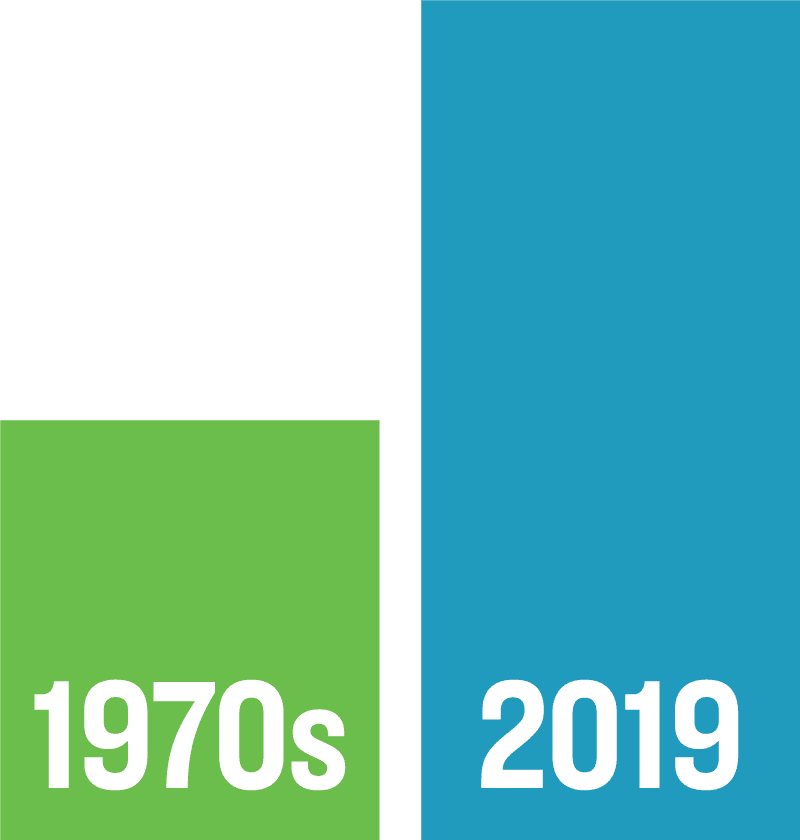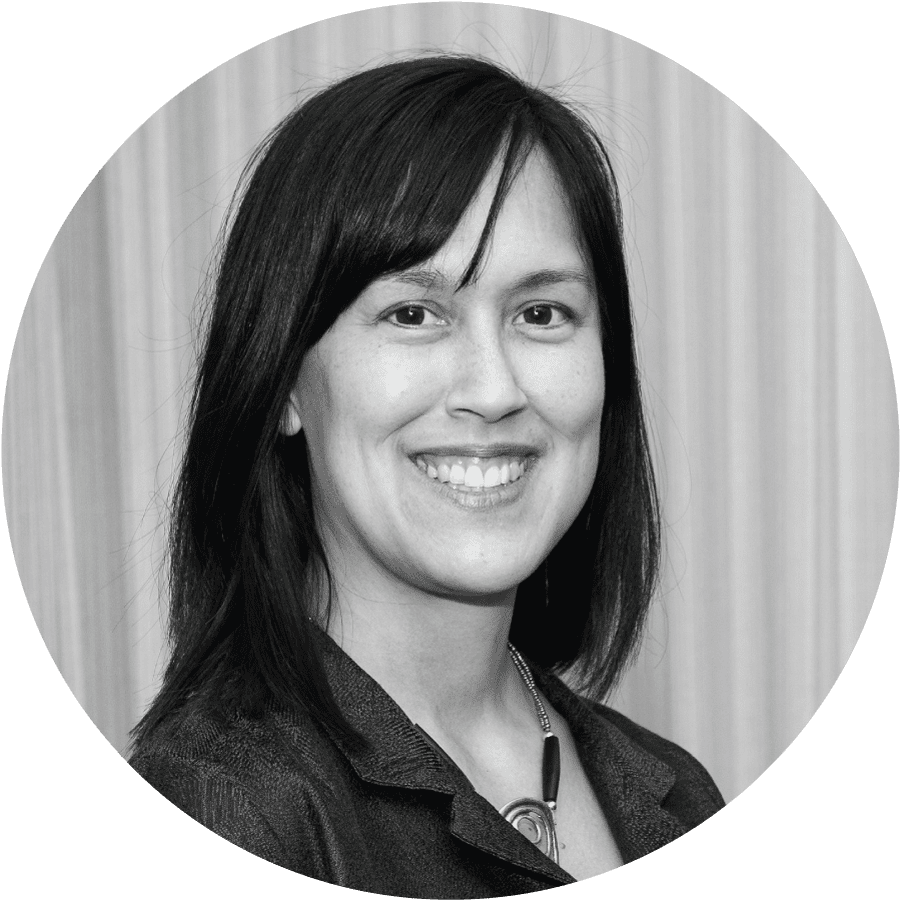These trends spurred us to take a deeper look at our past scholarship recipients and their college completion rates. In the summer of 2018, we commissioned a study, Western Mass Completes, with the expertise of Dr. Becky Packard.
Access to higher education is vital to creating thriving, equitable communities. Since 1992, the Community Foundation has grown our now robust Scholarship and Interest Free Loan program, connecting donors’ generosity with thousands of local college-bound students. Year after year, we’re invigorated and inspired by these students’ positivity, drive and personal stories—and we’re immensely honored to have played a part in getting them to college.
But what we haven’t known is how our scholars are faring in the long run. Are they graduating? If so, how long does it take? If not, why are they leaving school? Our questions about college completion for our students were galvanized by these parallel national trends:
FACT: 2/3 of all new jobs will require a 4-year degree.
However, only 1/3 of adults in our region have attained this educational goal. We need to build a more educated and skilled workforce for our region’s long-term economic growth and viability.


FACT: Shifting US demographics has created complex needs for college students.
The overall student population now hails from more diverse socioeconomic backgrounds, raising new considerations for ensuring accessibility and completion.
FACT: College completion has become a critical issue.
Higher enrollment isn’t creating more college graduates, as many leave school with the intention to return, but never do. This trend, known as “stopping out”, has become even more common at community colleges.
33%
Average rate of stopping out after one year
60%
Average graduation rates for 4-year institutions
25%
Average graduation rates for 2-year institutions

FACT: More and more students are enrolling in college.
Many young people recognize that new job opportunities require a bachelor’s degree. They understand that a college degree is key to an economically stable life.
FACT: The cost of college has increased alarmingly over the last few decades.
When it comes to paying for college, the playing field isn’t the same as it was years ago. In addition, the purchasing power of Federal Pell Grants has plummeted, further reducing financial aid for the students who need it most.


FACT: When students don’t finish college, they’re more apt to struggle financially, and less likely to thrive and contribute to their communities.
Students who stop out or drop out of college see 25% of their paychecks go to college loan repayment, yet they don’t have the economic benefit that comes with the credential. In fact, they’re paying for a credential that they may never receive.
What happened in Phase 1?
We Convened:
Ten local colleges and universities enthusiastically joined us in this endeavor, delving into the last eight years of their student data on CFWM scholarship awardees. We gathered information on the resources and systems in place at these schools, and collected findings from national research and articles.
We Discovered:
- Most of our students rely heavily on scholarships and aid to make college possible.
- Our students are doing better compared to peers with similar financial need and race / ethnicity, as judged by first-second year retention, four-or-six-year graduation rate, or GPA.
We Learned:
- More than ever, students need more time to complete degrees. More students are working full time while in school and taking a reduced course load. Many are balancing school, work, and family responsibilities.
- Financial roadblocks are complex and range from systemic to administrative. From annual tuition hikes to $20 unpaid fines, finances create barriers that result in “stopping out”, especially for high-need, first-generation students.
- Schools are working hard to keep students enrolled. Every institution in the Western Mass Completes initiative has recognized this need, and is dedicated to improving retention and completion.
What happened in Phase 2?
Learning in Action
Since 2020, we have continued to work with all college partners and have delved deeper into why our awardees flourish. We want to uncover what makes the difference in their outcomes, and how we and our partner colleges can replicate those factors to help others access and attain their educational goals, which can help create a more skilled and educated workforce for our community.
Phase 2 has included four distinct components: 1) an interview project with recent CFWM scholarship recipients to gain their perspective on the application process and challenges to college completion, 2) continuing the institutional research partnership across WMC campuses in a meaningful way, 3) a joint innovation project where the ten campuses could explore collaboration on student success with a regional lens, and 4) financial aid outreach to meet the needs of students during the pandemic.
Actions Taken
- We restructured our interest-free educational loan program so that students who find themselves in need of assistance may apply for a $3,000 annually.
- We allocated $120,000 in scholarship dollars to fund approximately 50 new scholarship awardees who were near the finish line, as well as rewarded scholarship to students in the past two cohorts who had not yet completed their college education.
- We provided $225,000 in emergency funding during the Summer and Fall 2021 to 4 of the 10 institutions in WMC with COVID-19 response grants to respond to food insecurity.
- We provided an additional $140,000 in emergency funding for students in each of the 10 WMC institutions to help student in the region meet basic needs.
Next Steps
- Develop an on-going financial aid “brain trust” with WMC collaborating institutions.
- Continue completion scholarships and pilot strategies.
- Consider strategies to support WMC campuses as they aim to improve college readiness and coaching for completion.
- Grow the number of students served in the healthcare pilot and learn more about barriers facing students in the “final mile” of a healthcare degree.

Becky Packard, PhD, is a CFWM Trustee and Professor of Psychology and Education at Mount Holyoke College. A national leading expert in research on factors that contribute to higher education persistence, Dr. Packard led the Western Mass Completes study. As a first-generation college graduate herself, Packard is especially appreciative of how the numerous contexts of home, school, community, and work need to come together to support the educational progress of students. Dr. Packard has held multiple leadership roles at Mount Holyoke, including Associate Dean of Faculty, and she has provided consultation to dozens of colleges and universities working toward improving student success.
“The issue of college completion matters here in this region. Despite the many large structural challenges, we also learned more about a range of seemingly small barriers that face students every day. We were encouraged to learn about the multiple strategies colleges and universities in Western Mass were using to improve student success and help students reach the finish line.”
Explore Your Community Foundation
Bold & Innovative
Learn about the mission, vision, and values that guide your Community Foundation
Mission, Vision, Values

